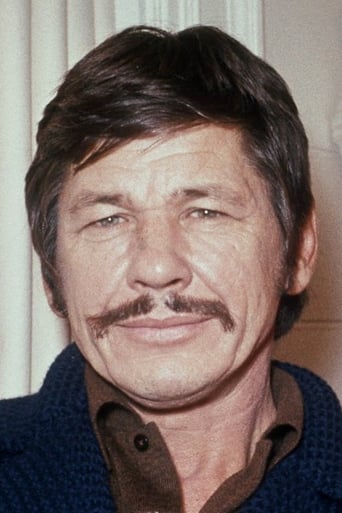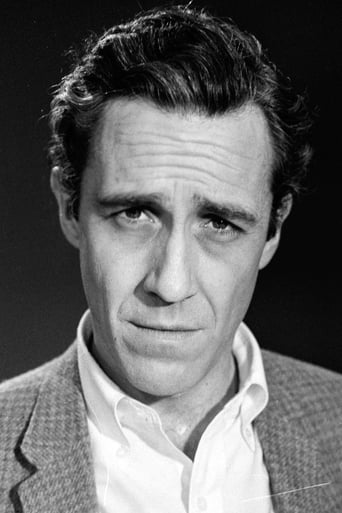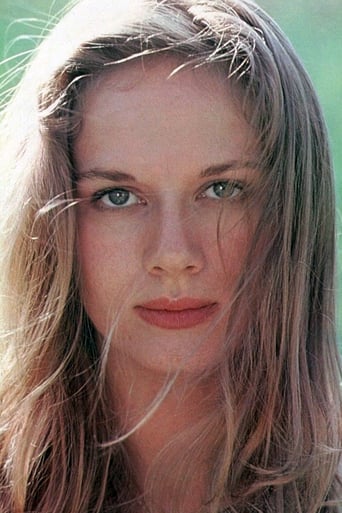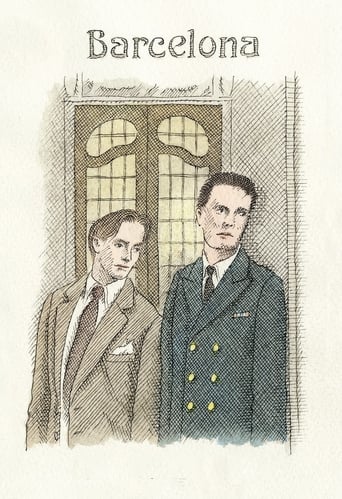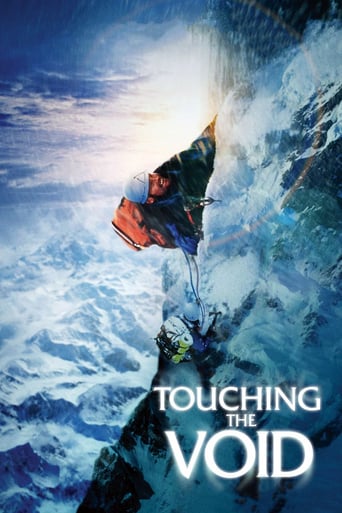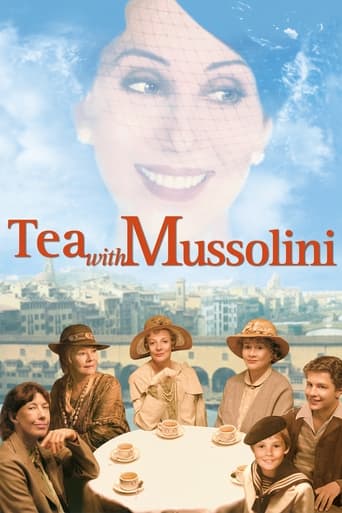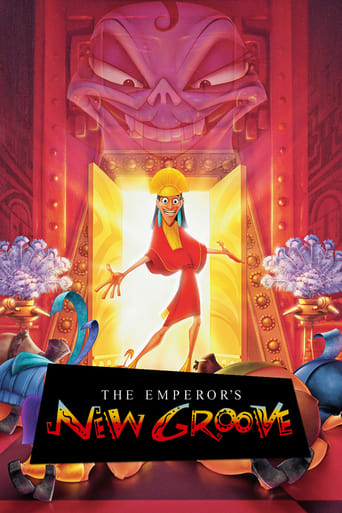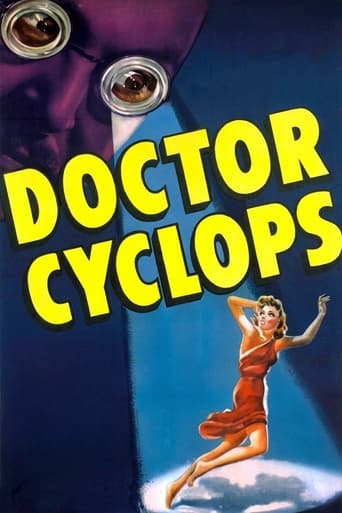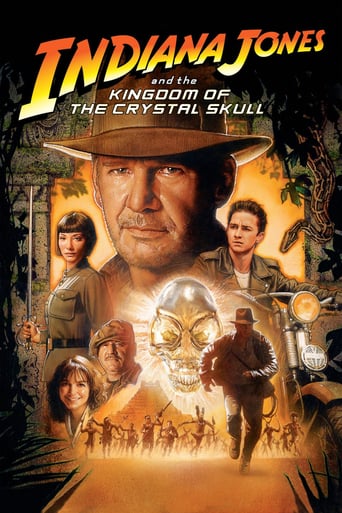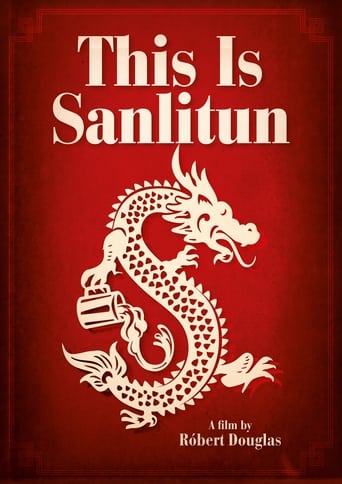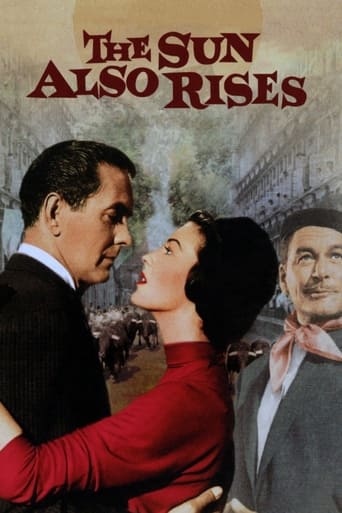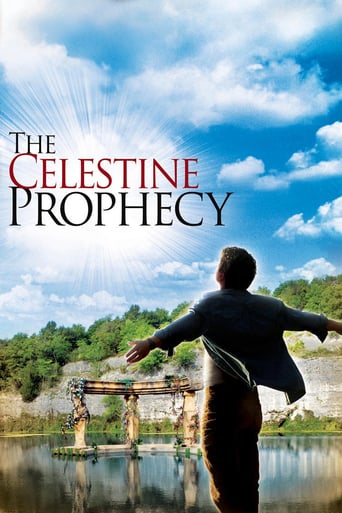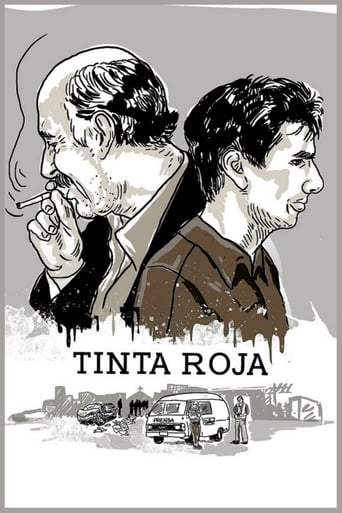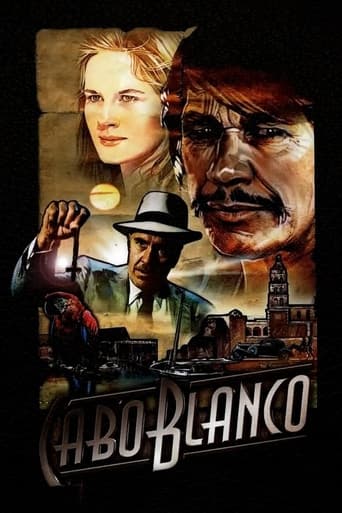
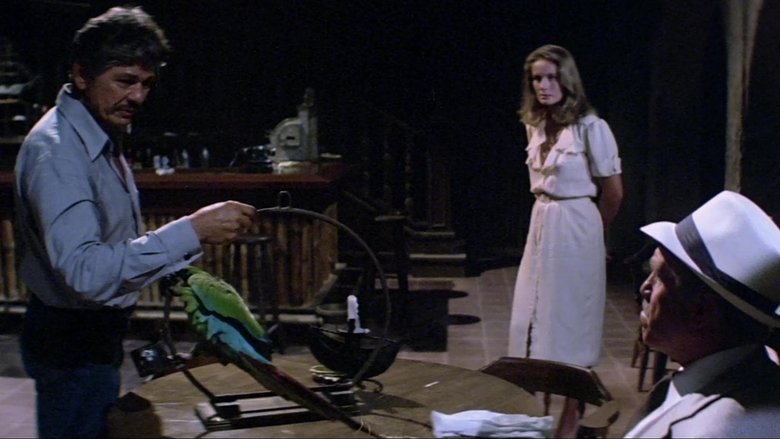
Cabo Blanco (1980)
Giff Hoyt, a cafe owner in Cabo Blanco, Peru after World War II is caught between refuge-seeking Nazis and their enemies. After the murder of a sea explorer is passed off as accidental death by the corrupt local police, Giff becomes suspicious. The police chief also intimidates a new arrival Marie, and Giff intervenes to help her. Giff suspects Beckdorff, a Nazi refugee living in the area. Beckdorff, it emerges, is seeking to uncover sunken treasure.
Watch Trailer
Cast


Similar titles
Reviews
Charles Bronson reteams once more with veteran British director J. Lee-Thompson for a typically violent movie in their usual style. One difference this time round is the unusual period and locale, but away from these slightly-out-of-the-ordinary details the film is very much more of the same from this long-running actor-director partnership.What's going on in the bay off Peruvian seaside town Caboblanco in 1948? The British are busily searching the seabed for something, hiding behind a cock-and-bull story that they're carrying out scientific research. A newcomer in town, the beautiful but mysterious Marie (Dominique Sanda) claims to be an ex-Resistance agent looking for someone she used to know. And on the hill overlooking the bay, Nazi war criminal Beckdorf (Jason Robards) is also desperate to lay his hands on whatever lies lost at the bottom of the ocean. An American fugitive running a seedy bar, Giff Hoyt (Charles Bronson), is concerned by all the strange comings and goings in his town, and decides to investigate further. He discovers that everyone is after a precious cargo which went down with a ship several years earlier; but no-one seems to know exactly where the vessel's final resting place actually is. Or is there someone mixed up in the whole thing who may know more than they're letting on? Plus points include colourful location work, a more-animated-than-usual Bronson performance, a strong supporting cast and a stirring score by Jerry Goldsmith. Negatives include clichés galore, an unclear and sometimes bewildering script, and too many absurdly unnecessary flashes of violence and nudity. One spear-through-the-eyeball moment in particular comes completely out of the blue, and would seem more at home in a gory early 80s slasher pic than a period adventure like this. Having said that, it all builds decently to a rather tense and well-handled final scene at Bronson's bar where our hero and the Robards character endure a final battle of wits. Not perfect by a long shot, but there are plenty worse ways you could while away 100 minutes.
The third collaboration between star Charles Bronson and veteran British director J Lee Thompson is, like its predecessor The White Buffalo, a strange beast but this time the collaboration doesn't quite manage produce something interesting. An all-star caper set in South America after the close of World War Two, Capo Blanco shows a disparate group of International adventurers going after what turns out to be a hoard of treasure looted by the Nazis during the war. The image of Capo Blanco as a melting pot of various International chancers gives the place in image as well as name a nod to Casablanca. The ex-patriot American protagonist, Giff (Bronson), runs a bar in town just like Rick in the classic and the supporting characters echo figures who once listened to the "You must remember this" refrain – an ultimately good but morally compromised police chief (Fernando Rey doing Claude Rains), a wicked Nazi (Jason Robards for Conrad Veidt) and a mysterious, beautiful woman with Paris in her past (Dominique Sanda standing for Ingrid Bergman). There is an awkwardness to the film, as if Thompson is unsure as to whether this is an homage or a pastiche.Thompson, in his later years especially, was a filmmaker whose world-view was riddled with misanthropy. Here he tries to take what Wilde might have termed a bank holiday from cynicism, as he confesses in a short "Making of" documentary filmed during the shoot, where he identifies the post-war setting as " an era of romanticism, an age when things seemed to have a drive and excitement of their own, when values were considered to be important and the feeling that the hero in the end should triumph and that you could root for good against bad. We've lost a lot of that, as indeed we should do in the modern cinema. But that is occasionally something which should occasionally appear on the screens when we're making a film today." Cabo Blanco is an exercise in nostalgia but it is exercising muscles in Thompson which had long-since wasted away. For the most part Cabo Blanco a tired film. The story is told without any real effort at audience engagement. Most of the excellent cast are on auto-pilot. Yet this is the logical consequence of its nostalgic romanticism.The denouement, a long and not very well-paced scene in Giff's bar, sees the moral of the film being played out, yet it is as if the figures are animated waxworks re-enacting scenes from a no longer living past. The police chief, who has up until now assisted the Nazi in the search for the treasure, learns that it is loot from "Churches, synagogues, death camps" and so jumps ship, joining the good guys. He regains, in Giff's words, "his soul". The film dramatises a moment when the post-war allies had the moral high ground and where their rectitude could persuade others that they were indeed the good guys. This is a legend now, as the film self-consciously admits in a series of mythologising voice-overs, and Thompson can only repeat it, parrot it. The plot self-consciously involves a parrot's memory. It as if the myth were preserved in aspic, no longer a living thing. The epilogue, over which the voice over tells us that "the legend ( ) grew and grew and Cabo Blanco prospered", shows Giff with a swanky house on a hill with the girl, living the good life. A good life built of the legend that he is a good guy.Yet Giff, as his back-story tells us, is a murderer. And as a murderer, he himself is on the run from gas chambers not in Nazi Germany but in the good old USA. Even when making a piece of supposedly romantic nostalgia, Thompson cannot help but let his cynicism seep out.
Director J. Lee Thompson and actor Charles Bronson always made an interesting team, and this particular effort was the last one I needed to see. Compared with most of their collaborations in the 80s, this is a diamond in the rough and quite an off-kilter, old-fashion adventure / mystery story that sets out to be intriguing and creates a nice feel of the times, than anything relying on Bronson handing out nasty punishment. Well on that point, the violence when it does eventuate is surprisingly brutal, if quick and too the point. When it happens, it comes from nowhere. However Bronson is given a chance to spread his wings, and act with confidence and stalwart appeal. It's a terrifically surly, down-played performance by Chuck in a suitable heroine role. Working off Bronson is a tremendously solid cast. Jason Robards' is subtly powerful in a fine turn and Fernando Rey's sly style always amuses. Dominique Sanda displays a potently classy presence. The support cast rounding it off are just as good with Simon Mac Corkindale, Dennis Millar, Clifton James and Camilla Sparv.Looming from the presentation is a film-noir tone, and I don't really get the 'Casablanca' references (from it being a rip-off to an unfunny spoof) made about it. There's no denying it's rather talky though, but the script is involving and smartly weaved together. This works due to the screenplay having a busy (if muddled) plot and still keeping a breezy (almost brooding) air to it. Some contrived, and convenient actions occur, and the drama can seem a little uncertain. But it never becomes a worry. Also how they used the breathtakingly erotic Mexican backdrop in the action was accordingly staged and well-framed. Talk about nice sight seeing. The swirling, wide-screen camera-work had that ability to capture that organic sense of place, although the underwater shots came off terribly murky. Thompson's direction is undoubtedly workman-like, slow and effective on a much larger scale, despite the dreary look to its visual styling. Jerry Goldsmith's rousing melancholic score is picture-perfect. Everything boils up to an thrilling climax, as the calmness makes way for a stormy (literally) confrontations of two men, who share something in common, but how they go about things are entirely different. They have a past they like to forget, and this is their chance for that to happen and put away that lingering fear of something catching up.One of Bronson's interestingly obscure oddities, which unjustly flopped and deserves an audience.p.s I would love to see a good DVD print of this film, because the grainy VHS copy I rented doesn't do it any justice.
Caboblanco" is not a bad movie, but you can easily divide its strengths and weaknesses. Fernando Rey and Jason Robards are the strongest actors. They both deliver great performances as they usually do. Charles Bronson does a solid job too. I think that he is often underrated as an actor, because of the decent quality of most of his movies. J. Lee Thompson directs this one in classy old-school-manner that could have produced a far better movie in case the script would have been above average, which it is not. The cinematography, the photography and the choice of locations are truly first rate. And J. Lee Thompson had the spirit and the feel of a director. He was born to do, what he did.Most of the supporting actors are pretty cool as well. But Dominique Sanda was a miscast. Her wooden and strangely impersonal acting did confuse me from the very beginning. She seems to be completely lost in nearly every scene and any suggestions of mystery to her character are not convincing at all. The chemistry between her and Cliff (Charles Bronson) doesn't work out at all and that's a pity, because everything else and everybody else seem so carefully chosen.But the main point to criticize is the script. It delivers some nice ideas, but too many loose ends and open questions. Why do scuba divers let the submarine explode that obvious, though they must have known, that the wreck was not the one everybody's looking for? Why did they kill the fisherman, who was diving for oysters for centuries? How come that Cliff was perfectly placed to rescue him, when the British agent Lewis was trying to escape through the jungle? These plot holes do not fit to an excellent script, which only could lead to an excellent movie. It's a pity, because Caboblanco already got many fine ingredients: competent actors, a perfect score by Jerry Goldsmith, marvelous locations and a stunning cinematography! In the end it's only a decent action flick worth watching once for fans of Charles Bronson and/or J. Lee Thompson.It's interesting to realize that the theatrical version of "Caboblanco" shown in Argentina is 15 minutes (!) longer than the one we watch nowadays in the US or Europe on DVD. My whole impression of the movie might have been influenced by the fact that it was heavily cut, which seems to be possible as soon I think of those "plot holes" I already mentioned. I think it's necessary to get that uncut 102 minute print to be published as soon as possible.Last but not least: Do not forget to check out the perfect Bronson/Thompson collaboration "Murphy's Law" (1986), which is the most underrated B-movie of the decade.


